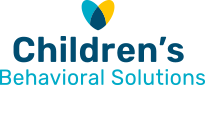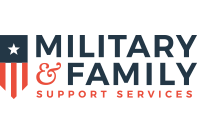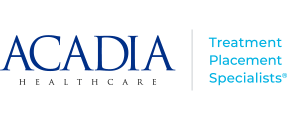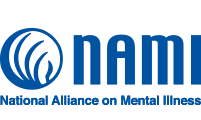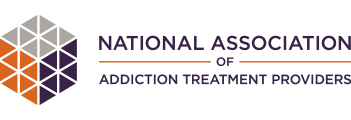Acadia Healthcare is proud to serve our country’s first responders who have been impacted by trauma. The trauma that first responders experience in the line of duty has the potential to cause adverse effects such as addiction and chemical dependency. To support this effort, Acadia’s Treatment Placement Specialists® are increasing addiction awareness and education while providing practical solutions to help these individuals receive the addiction treatment they need.
Trauma in the Field
Being a first responder means facing a certain amount of upheaval and uncertainty. Most have witnessed some incredible moments in the lives of those they serve. However, these jobs also expose first responders to devastating and traumatic situations.
Though trauma is frequently associated with a first responder’s job, it can have a negative impact on the lives of both new and seasoned first responders. At the time of a traumatic event, individuals may be unable to predict the impact it will have on their lives.
Certain circumstances may cause even the most experienced professionals to feel vulnerable or exhibit difficulty performing their jobs. If this happens, it is best to seek professional care from a trauma-informed treatment program that specifically caters to first responders.
The Danger of Self-Medication
While it can be difficult to disclose your mental or emotional health concerns, failing to seek professional treatment often makes symptoms worse. Some individuals avoid discussing mental health struggles to prevent an impact on their job. However, unaddressed mental health concerns can compromise your ability to rise to the challenges that you face each day.
When you fail to develop healthy tools to minimize your pain, you may seek relief through alcohol or other substances. This type of self-medication occurs with many first responders, making them more likely to struggle with chemical dependency concerns.
If you are worried about a substance use disorder, there is help available. You can overcome addiction through a specialized treatment program that offers services tailored to first responders.
Recognizing Signs & Symptoms
While each person struggling with addiction has a unique experience, there are some common signs that indicate you may benefit from addiction treatment. Anyone who exhibits the following symptoms should seek a thorough evaluation from a mental health professional:
- Attempting but failing to stop alcohol or drug use
- Using alcohol or drugs in dangerous situations, such as while driving or at work
- Continuing to use alcohol or drugs after suffering the consequences of addiction
- Relying on alcohol or drugs to get through the day
- Poor work or school performance due to alcohol or drug use
- Experiencing physical discomfort when not using alcohol or drugs
- Mood swings, ranging from irritability and anxiety to agitation and depression
- Withdrawing from loved ones
- Memory loss
- Poor judgment
- Impaired coordination
- Slurred speech
- Thoughts of suicide
Effects of Addiction
Addiction is a progressive condition that typically worsens without treatment. Those who continue to use alcohol or drugs can cause considerable damage to many aspects of their lives.
You might find yourself unable to perform your professional duties and can compromise the safety of others if you are intoxicated at work. Your personal relationships may suffer, causing you to feel alone and isolated.
These outcomes should not be viewed as signs of weakness but rather reminders of the sheer power of addiction. If any of these adverse effects are impacting your life or the life of a colleague, know that no one is alone in their struggles. A life without drug or alcohol addiction is possible with the right support, and countless other first responders have successfully walked the path of recovery.
Our Services
Acadia Healthcare’s Treatment Placement Specialists® team provides the following services for first responders who are suffering from addiction:
- Access to a national network of trauma, mental health, and addiction treatment programs
- Individual matching with vetted local programs
- Communication with appropriate parties (EAPs, unions, referents) while individual is in treatment
- Continuing care planning
How to Get Help
Once you acknowledge that you need help, Acadia Healthcare’s Treatment Placement Specialists® can guide your search for the appropriate treatment program. You will work with your dedicated TPS and our public safety liaison to determine the program that best suits your needs, and you will also discuss any co-occurring concerns or symptoms that you are experiencing.
First responders may enter inpatient, residential, partial hospitalization, intensive outpatient, or traditional outpatient treatment programs for addiction. These levels of care may provide the following types of therapy:
- Individual therapy – These one-on-one meetings allow you to privately talk with a mental health professional to help with symptom management and the processing of emotions.
- Group therapy – These sessions allow you to share your thoughts, learn from the experiences of others, and receive feedback from a counselor or therapist. Many programs offer focused group sessions for first responders, military members, or other professionals who are regularly exposed to trauma.
- Family therapy – This type of therapy, and related supports services, can help you reconnect with loved ones, heal the division that may have resulted from addiction, and learn to function as a more supportive unit.
- Experiential therapies – These interactive experiences emphasize the mind-body connection and provide you with new ways to express and process your emotions.
- Eye movement desensitization and reprocessing – Also known as EMDR, this is a specialized treatment that is effective in helping individuals with posttraumatic stress that has led to addiction.
There is no single type of treatment that is best for every first responder who is struggling with addiction. Each person’s circumstances will vary, making it important to find the treatment that is right for your needs.
